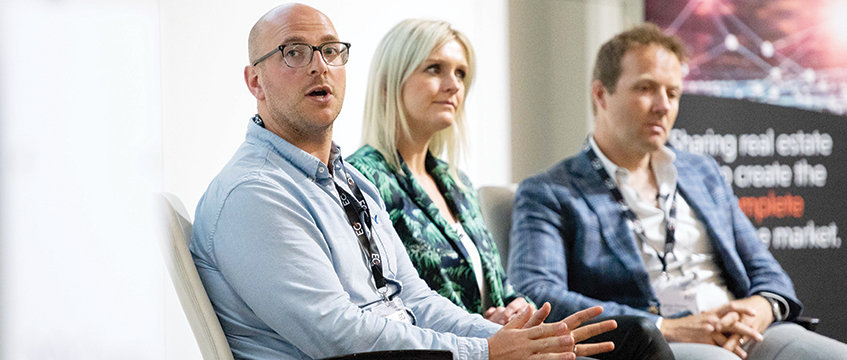Use data better. Be like WeWork. And don’t mention millennials.
Those were the key messages at the heart of this year’s EG marketing summit, which revealed a discipline that’s changing: one that’s professionalising and embracing societal shifts.
“We can’t just give people what we think they want any more,” Charlotte Steedman, founder of marketing agency Conductor, told delegates. “We got away with it for a long time, but thank goodness for the disruptors.”
Just as tech and data are shaking up the way the wider industry does business, marketeers within the sector are having to change, too. It was Steedman who said the word “millennial” had been banned in her office. And, talking about build to rent, she said that the language of marketing had to change to counter “community engagement fatigue”.
“The thing about build to rent marketing is that it’s not now about a big sexy campaign at the beginning, it’s about how we keep people here without churn happening all the time. How do we make experience relevant this year and in 2030 – because our clients will be holding that asset for all that time.
“We have to think about how we are going to be living in five years, 10 years and 15 years.”
It’s not just resi that’s changing; the rise of the flexible workspace – and the insight it generates – is changing behaviour and priorities among office marketeers, too.
“We realised as a company we have access to an incredible amount of data and information about how an office is run – more than any landlord or occupier has had before,” David Kaiser, WeWork’s director of real estate transactions for Europe and Israel, told the summit.
Data prompts WeWork to make what can seem like minor changes – but ones which, collectively, add up.
“We take as much data as we can to improve member experience,” Kaiser said. “How often is a sofa used? If we move it slightly, is it used more and will people sit, talk and engage to build a community?
“We used to have a beer tap against a wall so people could have a beer after work. Now what we have found is if we put the beer tap on an island and allow people to queue round the island, people speak more, people engage, people build a community and they network.”
However, according to James Fenner, founder and managing director of Silk Road Marketing, real estate still has some way to go before its approach to marketing is as sophisticated as that adopted in other industries.
“The first time I was on a property project I was amazed by the lack of insight used within property marketing as a whole.
“The car industry, where I worked before, was driven by customer insight. The more I worked in this industry, the more I became appalled by the lack of insight, customer knowledge or future training put into the product itself.
“We now do a lot of work with consumer insight plus future trending to help people design better products.”
But drawing on his recent experiences in the resi sector, Fenner said there was still ground to be made up.
“I’m a real believer in the Marmite analogy. You want people to love something or hate it.
“Quite often you see people walk into an apartment and you hear them say ‘that’s quite nice’. You then ask them for £1m.”
What that highlights is that in real estate there is too much “generic product” and not enough customer focus.
“It’s the only category I’m aware of that hasn’t put the consumer at the centre of everything.”
That, it seems, is beginning to change.
■ EG marketing summit in partnership with Showhouz and High Level Photography and Filming











